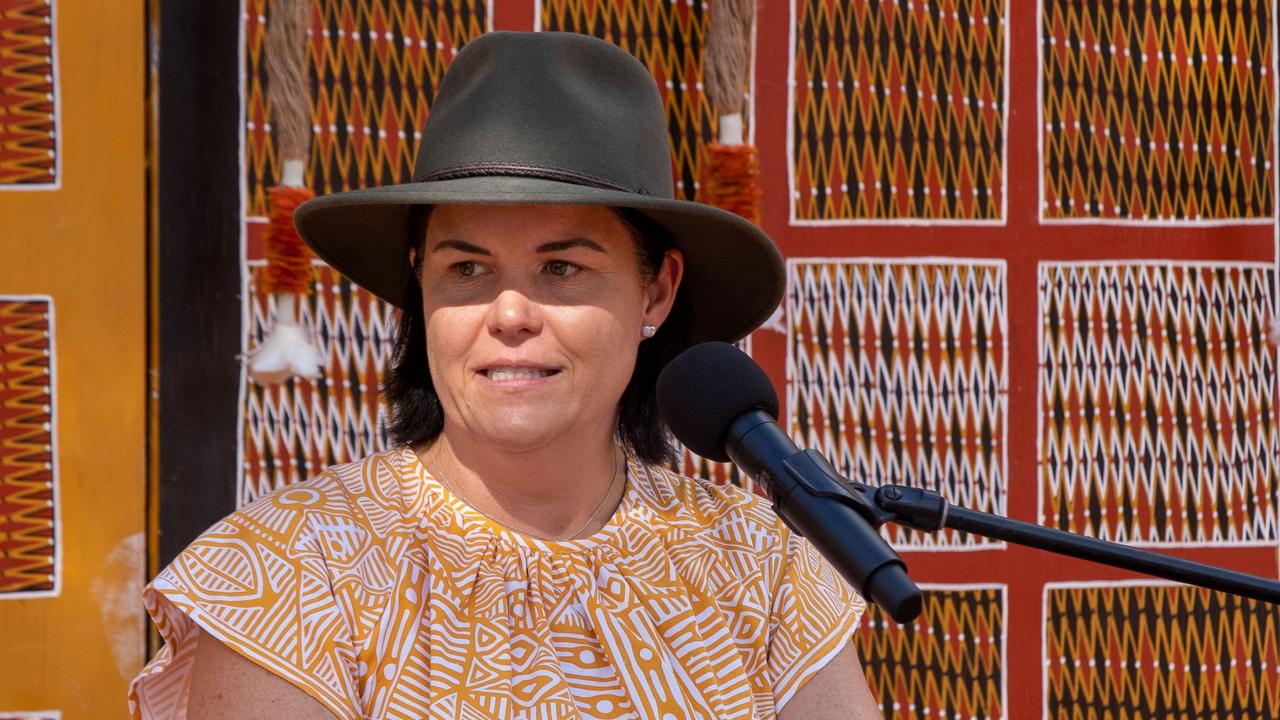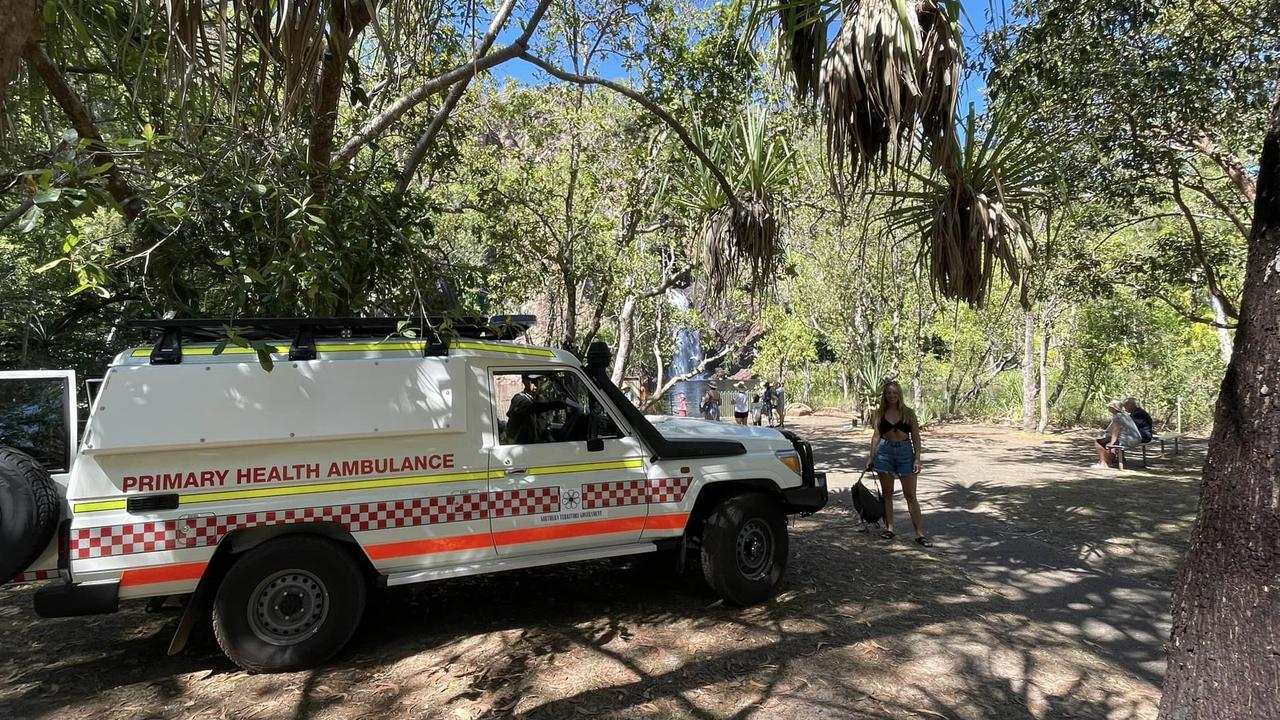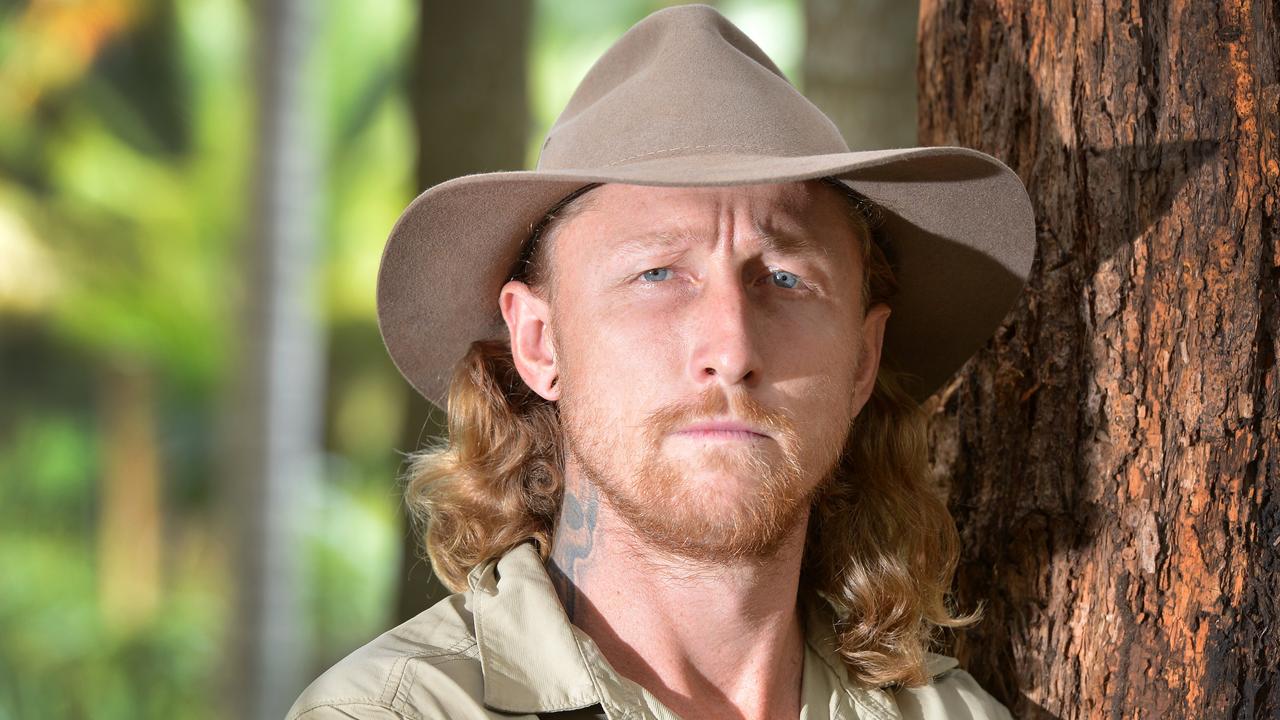Natasha Fyles calls for croc culling debate after Wangi attack
The Chief has contacted Prime Minister Anthony Albanese in plea for crocodile management plans to be reviewed. Here’s what’s on the cards.
The Territory’s top politician has written to Prime Minister Anthony Albanese about croc culling after saying “it’s time” to consider reducing the population once again.
It comes after a horror attack in one of the Top End’s most popular swimming holes on Monday.
An NT News poll shows six in 10 readers agree, while another 20 per cent agree with culling only if it is strictly managed.
However a former NT croc tour guide says culls hark back to an “old-school mentality of self-entitlement” over the environment and will not improve public safety.
Chief Minister Natasha Fyles on Wednesday wrote to Mr Albanese to request that both governments review their crocodile management plans.

The commonwealth is responsible for saltwater crocodile management in Kakadu National Park, however the Territory looks after the rest.
The NT News understands that significant changes to those plans would require amendments to federal law.
Saltwater crocodiles were hunted to near-extinction until they became a protected species about five decades ago.
“When culling stopped in the Northern Territory in the 1970s we had around 3000 crocodiles,” Ms Fyles said on Tuesday.
“There’s now estimated to be over 100,000 crocodiles – so a significant increase.”
In 2007 there was widespread political pressure to allow safari hunting in the Territory and the export of crocodile skins, however the former environment minister Ian Campbell decided against it.
“We do have programs around management through egg collection … rangers that undertake patrols,” Ms Fyles said.
“But I think it’s time for us to consider, ‘do we need to go back to culling?’”
Ms Fyles said traditional owners would need to be consulted but said she understood some TOs were being impacted by the apex predator’s bigger population.
“It’s extremely scary and it does have an impact,” she said.
“We’ve got crocodiles looking for different areas and so they’re pushing further into spaces where they perhaps haven’t been before.

“It impacts on traditional owners and impacts on their ability to go out on country and undertake cultural activities.
“It impacts on tourism, it impacts on locals.”
Veteran tour guide Damian ‘Wildman’ Duffy, who formerly worked at Spectacular Jumping Crocodile Cruises, said crocs had returned to their natural population level in the Territory.
“There are as many crocs as there are meant to be – it is a literal environmental impossibility for their population to grow a lot more,” he said.
“They’ve made a full recovery after the culls, compared to Queensland where they are still listed as a vulnerable species.”
Mr Duffy was dead against a cull as he said the apex predator had an important role to play in the Top End’s ecosystems, as well as in tourism.

“These incidents are few and far between – the management plans are working,” he said.
“If you remove any number of crocs it will not make it 100 per cent safe to swim.
“People still swim at Nightcliff Beach but they remove around 300 crocodiles in the Darwin Harbour every year?
“Culls will only lead to a false sense of security, it’s complacency in overdrive.”
Mr Duffy said rangers could look at better barriers around popular swimming holes but said ultimately people “run the risk” every time they entered Top End waters.
“Now is not the time to drop the ball on management strategies or go backwards – Australia has already got the highest rate of mammal extinction in the world,” he said.
It comes the day after a man was bitten by a 2m saltie at Wangi Falls – one of the most popular swimming holes in Litchfield National Park, just an hour south of Darwin.
About 80 people were swimming in the falls at the time of the attack and were forced to flee the water.
The 67-year-old man attacked by the croc remains in hospital in a stable condition.
Last week another popular Top End waterhole, Bitter Springs, was closed after a saltwater crocodile was spotted in the water.




